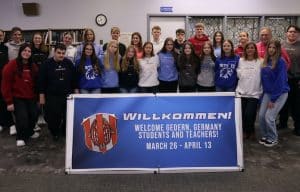Local praise for PPP
The Paycheck Protection Program, which has loaned hundreds of billions of dollars to businesses during the ongoing coronavirus pandemic, has been met with mixed reception.
Some have praised the program for helping business owners during a historically difficult time, while others have criticized it for not providing enough money or giving loans to large, publicly-traded companies.
According to two Waterloo business owners, the program has worked for them.
“I was very happy and very relieved,” Julie Weber, owner of Children First Learning Center in Waterloo, said of when she learned her application was approved. “It helps out when no income is coming in and you still have bills to pay.”
“It was tremendous news,” Waterloo Automotive co-owner Phil Meyer seconded. “It’s a great program. I think our type of business is what it was designed for.”
Weber and Meyer both submitted applications within the first week of the program being available. Within about a week, each heard their business would receive a PPP loan.
Both owners said the application process was easy, as they used a lender or a bank.
“It was very short and very easy,” Weber noted. “It wasn’t much of a hassle at all.”
“The bottom line is having a relationship with a bank was just absolutely invaluable,” Meyer, who banks with State Bank of Waterloo, added before noting he knows a business owner in St. Louis who went through an international bank and spent several frustrating hours himself trying to apply.
It appears most Monroe County businesses have those relationships, as the Republic-Times was unable to confirm any businesses that were not approved for the program.
The overwhelming majority of PPP loans are forgivable, provided businesses use 75 percent of the funding to keep their employees on payroll for at least eight weeks.
The money can also be used for expenses like rent, utilities and loan payments.
“The whole purpose of it was to get everybody back on payroll and off of unemployment,” Weber said.
Weber said employees were excited to get a paycheck again, but the situation was complicated because many were making more on unemployment than when they were working.
“That was a little bit hard, but most of them were relieved,” Weber said. “They’re all ready to get back to work.”
In Meyer’s case, his business has remained open this entire time because it is considered essential.
But he still saw a “substantial” loss of revenue in April, despite implementing a drop-off only service policy and purchasing an ozone machine to help kill any germs in vehicles, because people decided to delay services like oil changes.
The PPP allowed Meyer to keep his employees on staff, which is important to him.
“I’ve got great employees here,” he said. “A lot of them have been with me for a long time, and it’s important for me to be able to retain them because a lot of them have families, too.”
Overall, Weber agreed.
“It was a good thing,” she said of the program.
“It put us not in great shape, but in comfortable shape,” Meyer added.






